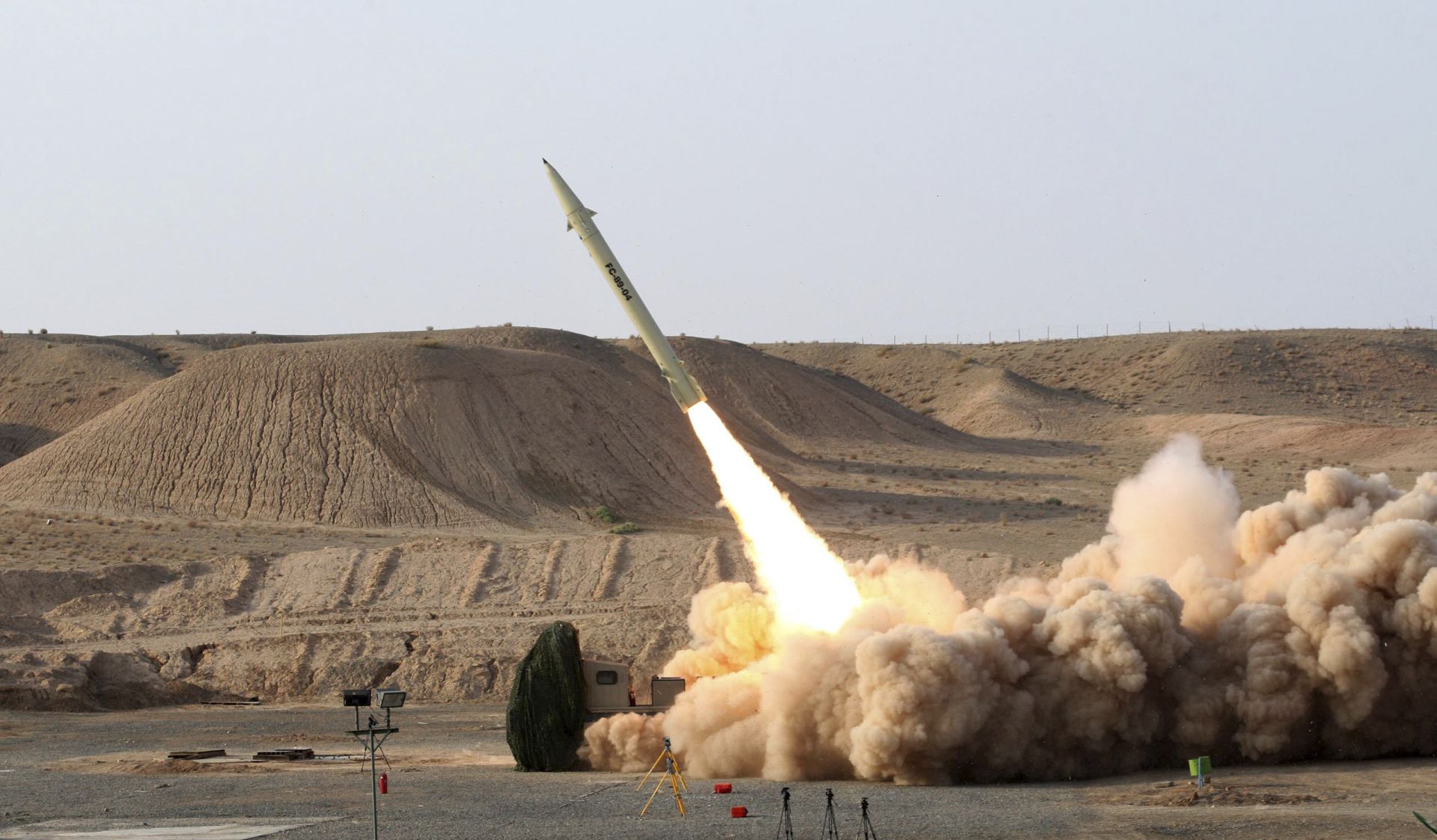Tehran: Iran’s President Hassan Rouhani unveiled the country’s latest domestically produced surface to surface missile on Saturday, saying such weapons are necessary for defence in the Middle East.
The Fateh (Winner) 313 ballistic missile has a 500-kilometre (300 miles) range and features more advanced sensors and technology, according to Sepah News, the website of Iran’s powerful Revolutionary Guards.
It was rolled out little more than a month after Iran and world powers concluded a deal that requires Iran to curb key parts of its nuclear programme in exchange for a lifting of economic sanctions.
The missile was displayed as part of Defence Industry Day, an annual event that showcases Iran’s hardware.
“A weak country incapable of confronting and defending against the military power of its neighbours and enemies cannot claim to seek peace,” the president said in a televised speech, citing the need for diplomacy and military efforts to stand side by side.
“Iran’s strategy is based on defence and deterrence. The first line is diplomats and the second line is generals. Diplomats should be backed by generals. If they fail, it is the generals’ turn to come forward.”
Several versions of the Fateh missile have been produced in the past few years. The 313 model has been successfully tested and is scheduled for mass production, the Sepah News report said.
Iran’s ballistic missile programme was a contentious issue in the talks that led to the nuclear deal in Vienna on July 14.
To ensure a lifting of sanctions Iran must implement changes to its atomic activities and guarantee they are for energy and medical purposes. Iran has always denied seeking a nuclear bomb.
However critics of the nuclear deal in Tehran said that a recent UN resolution regarding missiles, albeit a non-binding measure, placed unacceptable curbs on Iran’s military capabilities.
The latest UN Security Council resolution adopting the nuclear agreement bars Iran from owning missiles “designed to carry nuclear warheads”.
It also stipulates that transfer to Iran of ballistic missile technology during the next eight years will be subject to the approval of the council. The US has said it would veto such requests.










